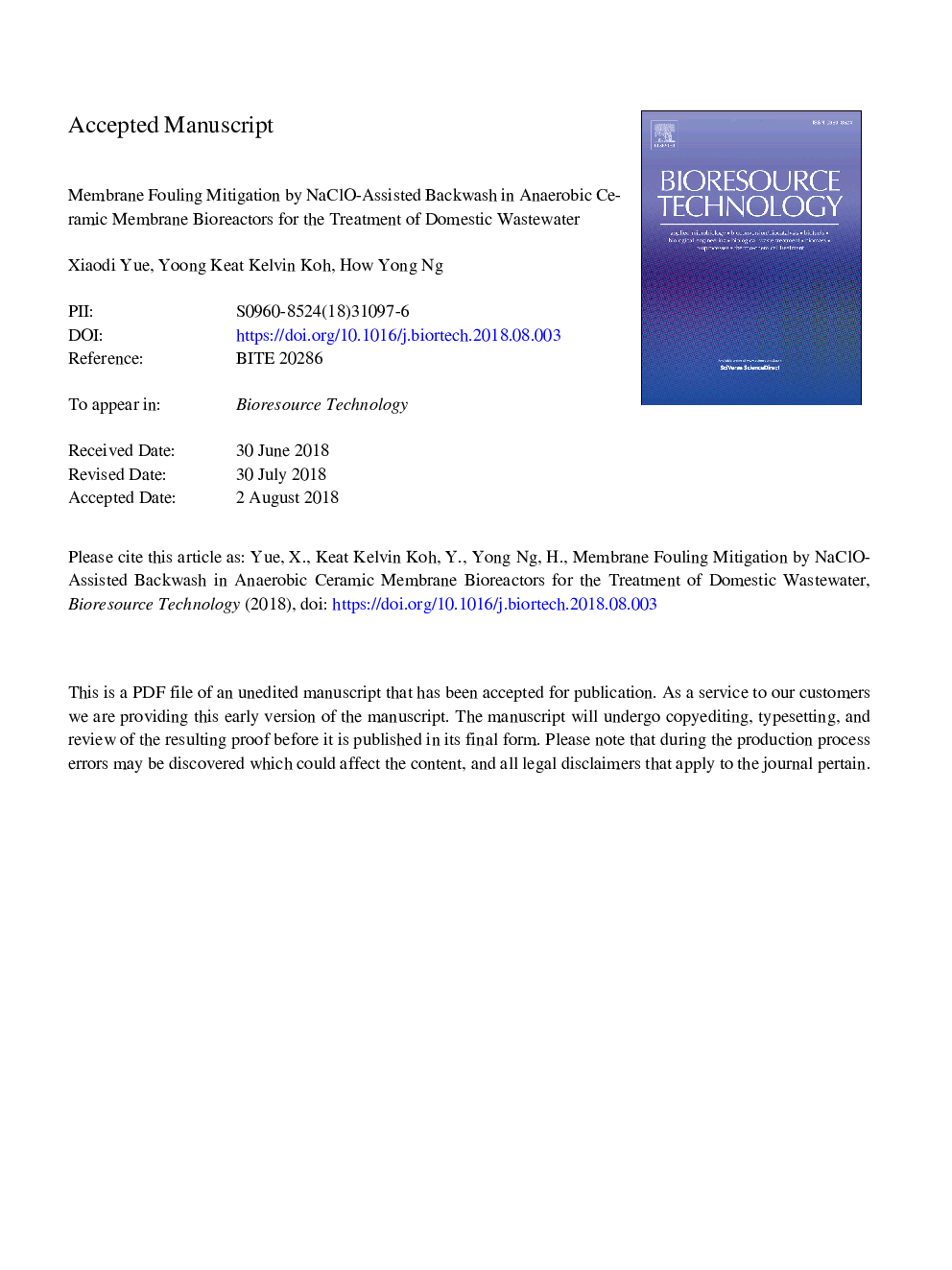| Article ID | Journal | Published Year | Pages | File Type |
|---|---|---|---|---|
| 11003463 | Bioresource Technology | 2018 | 33 Pages |
Abstract
In this study, the NaClO-assisted backwash was used to mitigate membrane fouling in anaerobic ceramic membrane bioreactors (AnCMBRs) treating domestic wastewater. Four NaClO concentrations (Cbackwash) - 0.05, 0.25, 1 and 10â¯mg/L were used for backwash. In general, the effectiveness of NaClO-assisted backwash is the balance of two forces - foulants removal from membranes (i.e., the direct effect) and modification of mixed liquor (i.e., the indirect effect). With increased Cbackwash, the direct effect of NaClO was enhanced through removal of more proteins. The indirect effect of NaClO was more complicated. The biodegradability of organics in the wastewater and the microbial activities of biomass were improved with low Cbackwash. However, high Cbackwash deteriorated cell metabolism and led to excessive production of cell lytic products. Optimal Cbackwash that was used in this study - the Cbackwash that provided the best fouling mitigation and acceptable treatment performances - was 1â¯mg/L.
Keywords
Related Topics
Physical Sciences and Engineering
Chemical Engineering
Process Chemistry and Technology
Authors
Xiaodi Yue, Yoong Keat Kelvin Koh, How Yong Ng,
